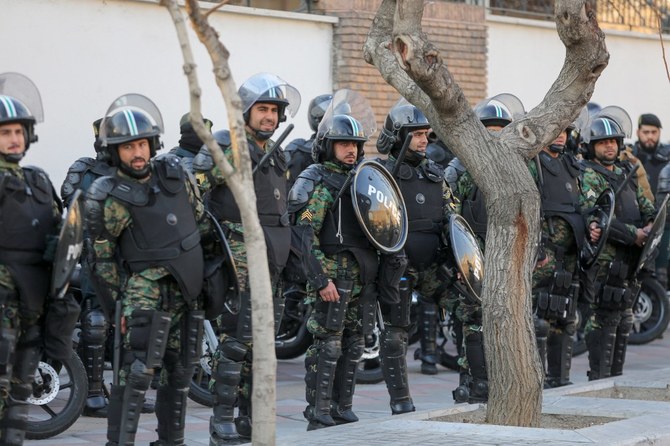LONDON: Syrian journalists, long silenced in the shadow of the oppressive regime of Bashar Assad, are beginning to shed their pseudonyms and reclaim their real names in a symbolic act of liberation following the tyrant’s fall.
During Syria’s descent into chaos in 2012, many journalists and activists adopted pseudonyms to protect themselves and their families from the regime’s brutal retaliation. For years, speaking out meant risking persecution, imprisonment, or worse.
Zouhir Masri, a London-based journalist formerly known as Zouhir Al-Shimale, said: “In the past, activists and journalists used to use pseudonyms to cover their identity for safety reasons since most of them, including me, had their family members stuck in Syria and unable to leave.”
Masri explained to Arab News: “Now that Syria is free, lots of people have started to use their real names which were suppressed and kept hidden out of fear of retaliation from the Assad regime’s security forces.”
Masri, who fled his home in Aleppo in 2018 after the regime’s chemical attacks, is one of many journalists now revealing their true identities.
Prominent figures such as Malath Assaf, director of programs for the unofficially rebel-affiliated Aleppo Today, and Rami Jarrah, previously known by the pseudonym Alexander Page, are now openly discussing Syria’s future without fear of reprisal.
One journalist, Manal Al-Sahwi, who investigated Syria’s illicit Captagon trade and its links to the Assad family, shared her story on Facebook earlier this month.
She wrote: “For years, I wrote more than 150 articles in addition to my daily work on the Daraj website. I thought my name would be hidden forever. I worked on dozens of investigations, human rights reports, blogs and opinion articles, believing the truth must be told, even if we remain in the shadows.”
Revealing she had used the pseudonym Carmen Karim, she added: “I only hope that I will never return to writing under a pseudonym again.”
The Syrian Network for Human Rights has reported that at least 717 journalists and media workers were killed between March 2011 and May 2024, while 1,358 were arrested or kidnapped.
Even those who fled abroad often lived under the looming fear of the regime’s long reach.
“It is well known that the regime did not only target individuals but also relatives. Therefore, we could never work under our real names. Personally, I didn’t have the courage to do it,” Assaf said in a recent interview.
However, it was not only journalists who had been silenced in Assad’s regime.
For years many ordinary citizens resorted to pseudonyms when sharing their stories with the media, fearing the regime’s ruthless reprisals.
Now, following Assad’s fall, they are walking the streets of Damascus with a renewed sense of freedom and reclaiming their right to express themselves openly.
“Finally, I am no longer afraid to express my opinion. I was scared to speak about anything related to the country, even if it wasn’t related to politics. This was the case of every Syrian living in the republic of fear,” said Shifaa Sawan, previously known as Suham Al-Ali, a teacher in Damascus, in an interview with Berlin-based Syria Direct.
“The sunrise was different that first day. It was not like the days before the regime fell. I walked through Bab Touma, Al-Qaymariya, Al-Maliki and Umayyad Square. I went to the Presidential Palace, repeating (Abdul Baset) Al-Sarout’s song ‘Janna Janna Janna, Ghali ya Watanna’.”
As the world watches to learn what the future holds for Syria and its people, the fall of Assad’s regime has brought a renewed sense of hope. Citizens are reclaiming their identities, removing their metaphorical gags, and shouting their long-suppressed voices.
“Using a fake name was to many Syrians part of suppressing their identity and who they really are as (a) Syrian,” said Masri. “Now this is no longer the case.”



























